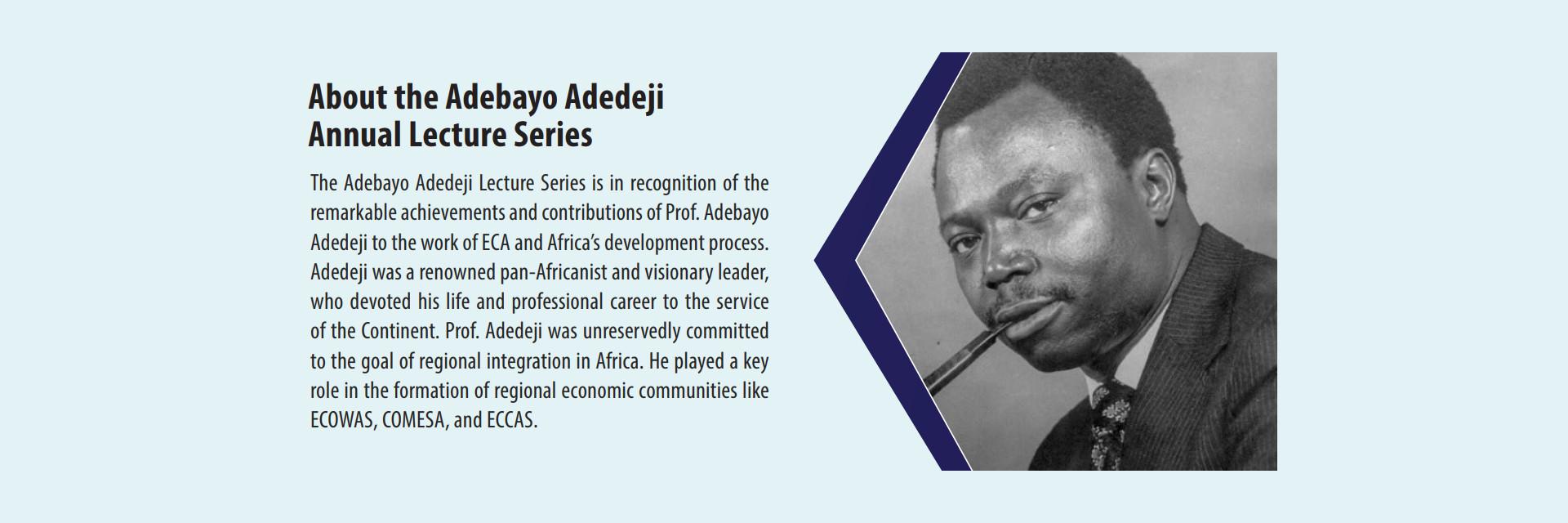Addis Ababa, Ethiopia, March 23, 2021 (ECA) - As the African continent deals with the global coronavirus (COVID-19) pandemic, regional integration and the implementation of the African Continental Free Trade Agreement (AfCFTA) have been noted as sure ways of attaining industrialization and economic development.
Delivering the annual Professor Adebayo Adedeji Lecture at the Economic Commission for Africa’s (ECA) 53rd Session of the Commission and 2021 Conference of African Ministers of Finance, Planning and Economic Development, Rob Davies, former Minister of Trade and Industry in South Africa, recalled his time with Professor Adedeji and said, even in the 1990s, he was a major figure in discussions on the future of Africa’s integration in the years immediately before South Africa’s democratic transition.
According to Mr. Davies, Professor Adedeji was very well known and prominent as a former Executive Secretary of the ECA, where he articulated Pan-African views and ideas. In this capacity, he said, he was renowned for the African Alternative Framework to the Structural Adjustment Programmes for socio-economic recovery and transformation (AAF SAP), which became a major beacon of hope and alternative to the externally-imposed Structural Adjustment Programmes, as the best, or only, way forward.
Mr. Davies said that many of the key messages of AAF SAP remain relevant more than thirty years on.
“AAF SAP’s point of departure and major premise was, and I quote its very first sentence, ‘The structure of the African economy defines the essential features of Africa’s central problem of underdevelopment’. AAF SAP identified what it saw as the structural weaknesses in most African economies. They included a ‘weak productive base’ characterised by low productivity and productive activities dominated by either subsistence or export-orientated primary product production,” he said.
The former Minister said, from this, AAF SAP identified the central task as structural transformation of African economies. ‘…Africa has to break the apron strings of structural and relational dependence on producing a limited number of cheap primary commodities for export,’ he said, quoting the document.
Mr. Davies suggested that the AfCFTA’s real prize would be if it supported the emergence of regional value chains involved in the production of higher value-added goods and services.
“Such an outcome could expect to see components and other intermediate inputs being produced in a number of countries before being assembled into ‘products of Africa’ consumed by the citizens of the continent and exported. Under such a scenario we could expect to see not just a quantitative increase in intra-regional trade but a qualitative change in its character. This would involve a greater absolute and relative intra-trade in components and intermediate products – which is in fact the largest and fastest growing part of global trade in goods.
Respondent, Beata Habyarimana, Rwanda’s Minister of Trade and Industry, emphasized the importance of digitalization as the continent looks to the AfCFTA as a game-change towards real economic integration, attaining industrialization and economic development.
“Africa's future development as a continent must be attained together,” she said, adding cooperation was key to achieving sustainable inclusive development.
In her remarks, Vera Songwe, the Executive Secretary of the ECA, gave tribute to Professor Adedeji and said he was one of the pioneers of the AfCFTA.
Speaking on behalf of the Adedeji family, Doyin Adedeji thanked the ECA for continuing to honour the memory of his father and described him as an “unrepentant believer in Africa’s development.” He noted that his late father would be full of smiles and gratification in the bosom of the Lord, as ECA celebrated his life and times.
Issued by:
Communications Section
Economic Commission for Africa
PO Box 3001
Addis Ababa
Ethiopia
Tel: +251 11 551 5826
E-mail: eca-info@un.org

